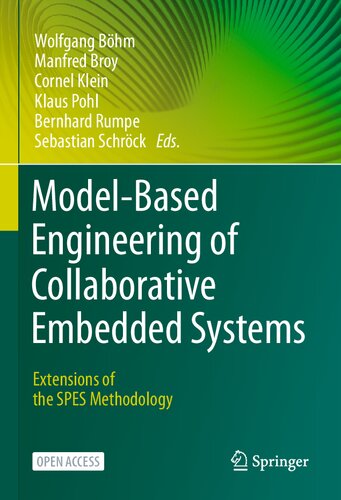

Most ebook files are in PDF format, so you can easily read them using various software such as Foxit Reader or directly on the Google Chrome browser.
Some ebook files are released by publishers in other formats such as .awz, .mobi, .epub, .fb2, etc. You may need to install specific software to read these formats on mobile/PC, such as Calibre.
Please read the tutorial at this link: https://ebookbell.com/faq
We offer FREE conversion to the popular formats you request; however, this may take some time. Therefore, right after payment, please email us, and we will try to provide the service as quickly as possible.
For some exceptional file formats or broken links (if any), please refrain from opening any disputes. Instead, email us first, and we will try to assist within a maximum of 6 hours.
EbookBell Team

0.0
0 reviewsThis Open Access book presents the results of the "Collaborative Embedded Systems" (CrESt) project, aimed at adapting and complementing the methodology underlying modeling techniques developed to cope with the challenges of the dynamic structures of collaborative embedded systems (CESs) based on the SPES development methodology.
In order to manage the high complexity of the individual systems and the dynamically formed interaction structures at runtime, advanced and powerful development methods are required that extend the current state of the art in the development of embedded systems and cyber-physical systems. The methodological contributions of the project support the effective and efficient development of CESs in dynamic and uncertain contexts, with special emphasis on the reliability and variability of individual systems and the creation of networks of such systems at runtime.
The project was funded by the German Federal Ministry of Education and Research (BMBF), and the case studies are therefore selected from areas that are highly relevant for Germany’s economy (automotive, industrial production, power generation, and robotics). It also supports the digitalization of complex and transformable industrial plants in the context of the German government's "Industry 4.0" initiative, and the project results provide a solid foundation for implementing the German government's high-tech strategy "Innovations for Germany" in the coming years.